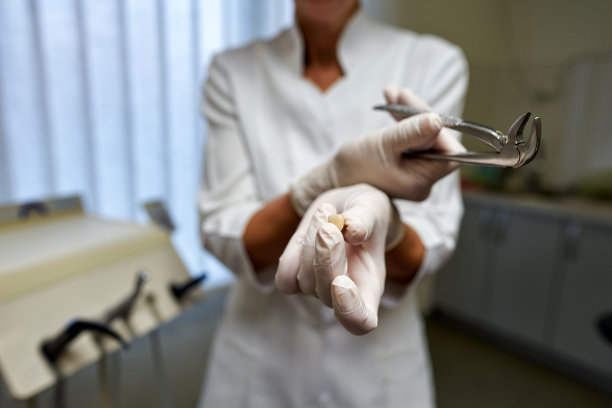Comprehensive Guidelines for Ensuring Safe and Successful Dental Implantation Procedures and Postoperative Care
Summary: Dental implantation has become a cornerstone of modern dentistry, providing patients with an opportunity to restore their smiles and improve oral functionality. This article delves into comprehensive guidelines essential for ensuring safe and successful dental implantation procedures and postoperative care. Divided into four crucial aspects, it covers the importance of meticulous planning, strict adherence to aseptic techniques, effective postoperative care, and the role of follow-up appointments. Each aspect is integral to achieving optimal outcomes and minimizing potential complications, thus enhancing patient satisfaction and ensuring long-lasting results in dental implantology.
1. Importance of Detailed Preoperative Planning

Successful dental implantation begins long before the actual procedure, relying heavily on rigorous preoperative planning. This phase involves assessing the patients oral condition, medical history, and anatomical considerations. Clinicians should conduct comprehensive examinations, including imaging studies like X-rays or CBCT scans, to determine bone density and any potential anatomical obstacles that could impact implant placement.
Additionally, a thorough understanding of the patients expectations and goals is paramount. Involving the patient in the planning process helps align the treatment plan with their desires, ensuring higher satisfaction levels post-implantation. This dialogue can also educate patients on the procedure, fostering trust and confidence.
Finally, the integration of a multidisciplinary team can be beneficial during the planning phase. Dentists, oral surgeons, and possibly orthodontists can collaborate to create a cohesive treatment plan tailored to patient-specific needs. This holistic approach reduces the potential for complications and enhances overall treatment outcomes.
2. Aseptic Techniques and Surgical Protocols
Maintaining strict aseptic techniques is critical throughout the implantation procedure to prevent infections. Surgeons must ensure that all instruments and materials are sterilized and that a clean surgical environment is established. This includes wearing appropriate personal protective equipment and employing barriers where necessary to safeguard against contamination.
Moreover, the surgical techniques adopted during the implantation must adhere to established protocols to maximize success rates. This involves precise handling of tissues and implants. Surgeons must be adept at both the technical aspects of the procedure and the nuances of soft tissue management to achieve optimal integration of the implant with the surrounding bone.
Education and training continuously play a vital role in the surgical teams adherence to aseptic techniques. Regular workshops and training programs ensure that all members are updated on the latest methods and standards in implant surgery, reinforcing their commitment to patient safety and procedural success.
3. Effective Postoperative Care Strategies
Postoperative care is crucial in the dental implantation journey. Following the procedure, patients must receive thorough instructions regarding oral hygiene practices, diet, and any prescribed medications to manage discomfort and prevent infection. Clear guidance helps patients navigate the healing process confidently and effectively.
Monitoring for potential complications also forms a significant part of postoperative care. Healthcare providers should instruct patients to report any signs of excessive swelling, pain, or other unusual symptoms promptly. Early intervention can mitigate serious issues, enhancing recovery outcomes.
Furthermore, the psychological aspect of recovery is often overlooked. Engaging patients in follow-up discussions about their experiences fosters a supportive environment that aids in mental recovery. This communication can significantly influence their overall perception of the success of their implantation procedure.
4. Significance of Regular Follow-Up Appointments
Regular follow-up appointments are integral to the long-term success of dental implants. These visits allow clinicians to monitor healing and integration, ensuring that the implant is functioning as intended. Through these appointments, any emerging issues can be identified early, allowing for timely intervention.
Additionally, these follow-ups serve as an opportunity for practitioners to reinforce oral hygiene practices and lifestyle recommendations to maintain implant health. Educating patients on how to care for their implants contributes to their longevity and overall oral health.
Lastly, follow-up appointments are essential for assessing patient satisfaction and emotional well-being. Consistent check-ins help build rapport between the patient and the dental team, fostering trust and encouraging patients to remain engaged in their dental care journey.
Summary:
The adherence to guidelines for dental implantation significantly enhances both the safety and success of procedures, from planning and surgical execution to postoperative care and follow-up. Emphasizing a patient-centered approach throughout these phases promotes satisfaction and long-term health of dental implants.
This article is compiled by Vickong Dental and the content is for reference only.



